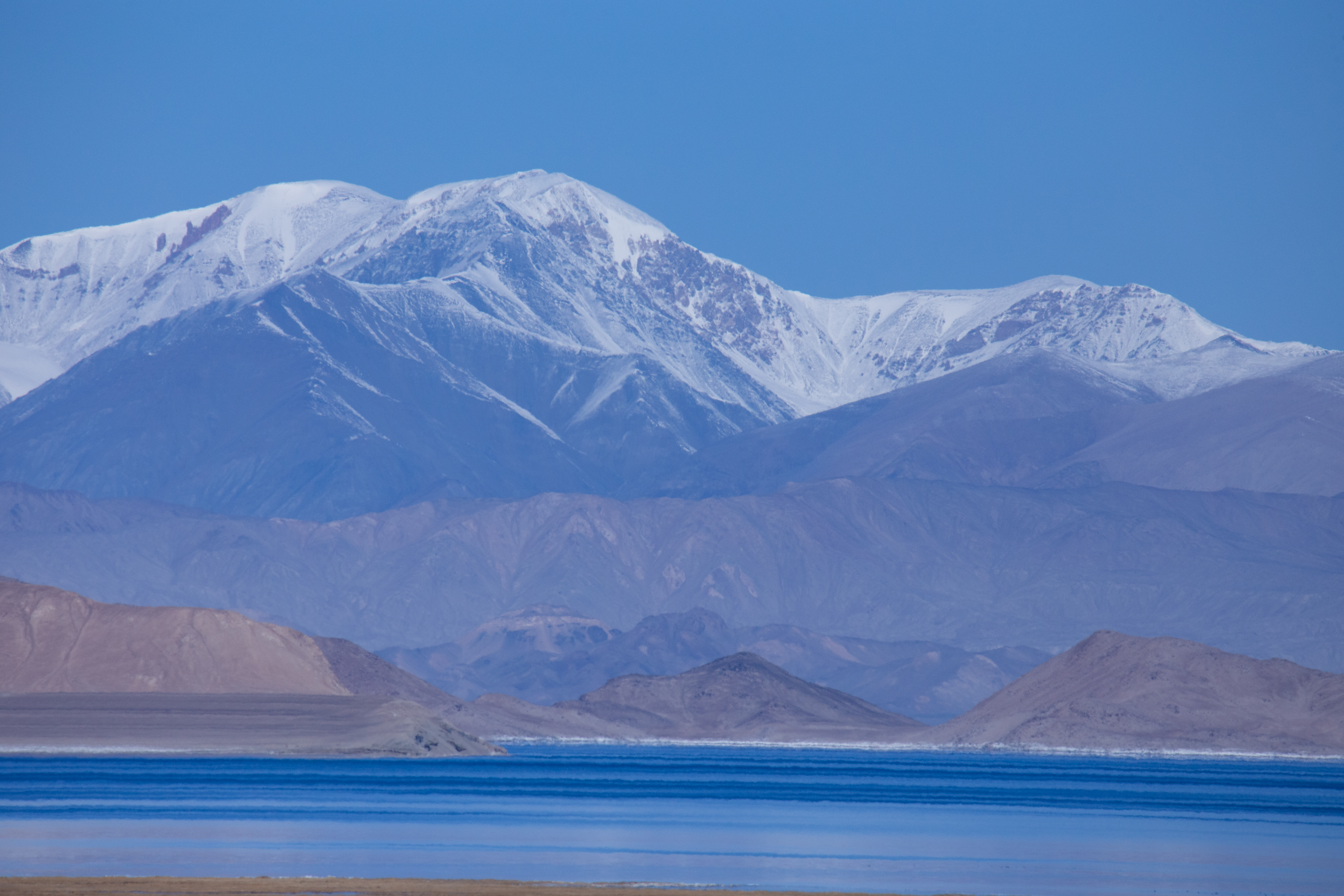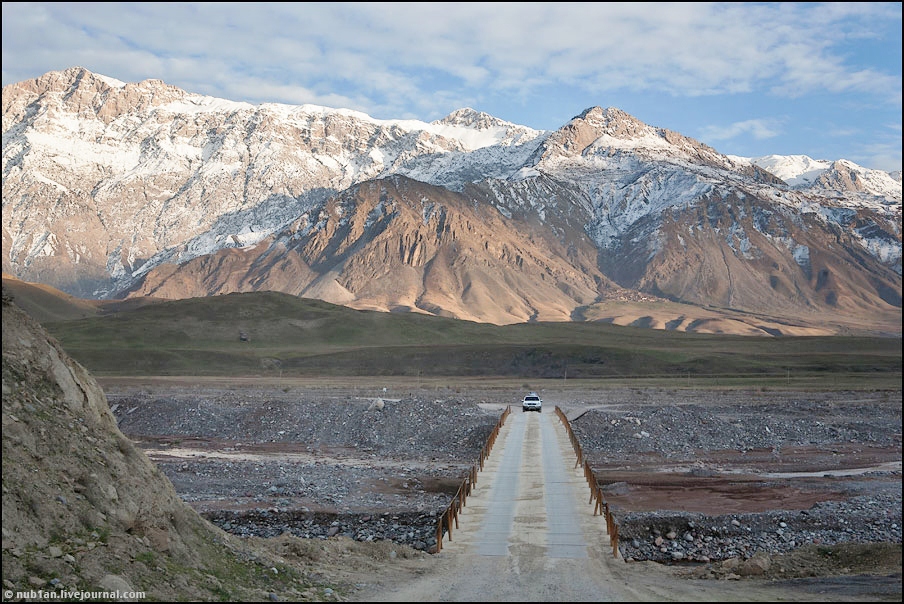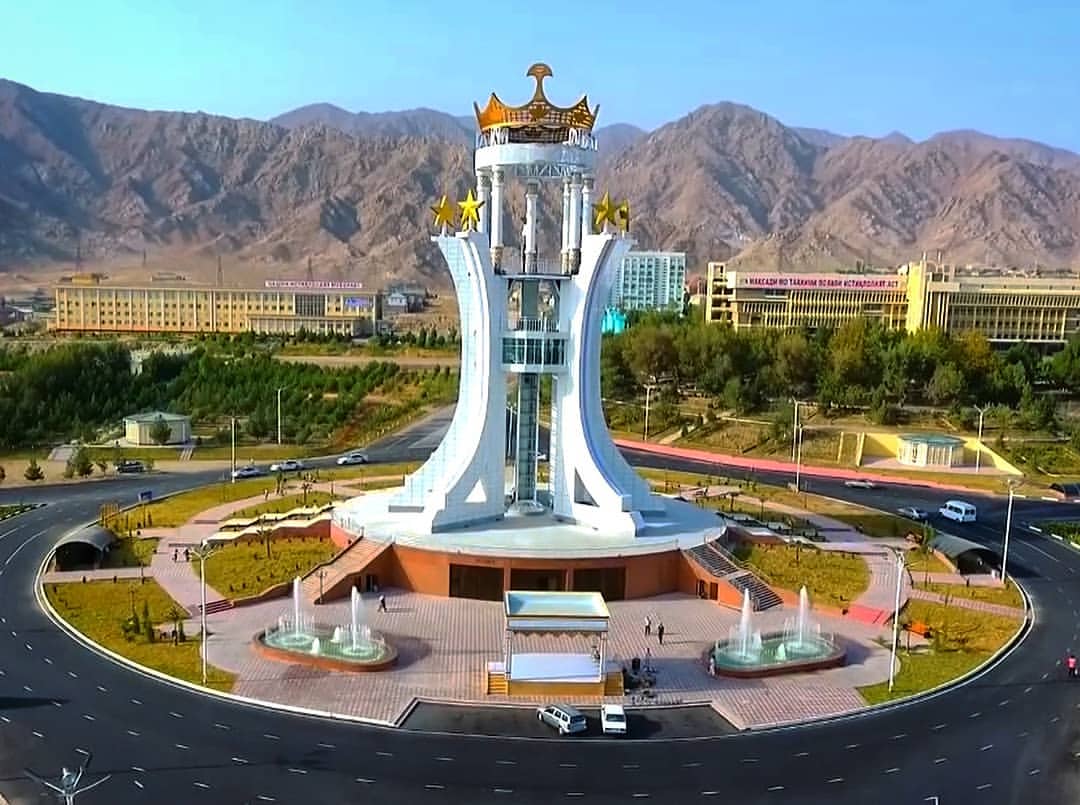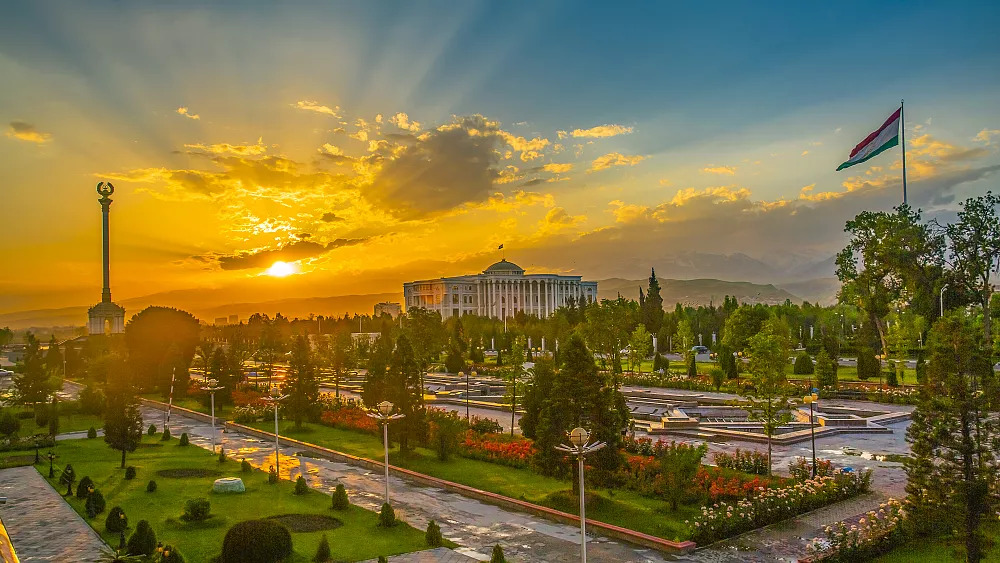
Hulbuk Fortress
The medieval town of Hulbuk is located in southwestern Tajikistan, in the Kulob region. It is situated 7 kilometers southwest of the district of Wose,
In Khatlon region due to the availability of natural, historical, cultural and environmental resources, tourism can be one of the priorities of the region’s economy.
The analysis shows that every year the number of foreign tourists wishing to visit the tourist areas of Khatlon region increases.
Currently, there are 4 tourist companies in the region, and their number will be increased several times.
There are 582 historical and cultural sites, 32 museums, 32 town-planning monuments, architectural and monumental buildings, 34 recreation areas and 60 hotels in the region. Also in the region there are 13 resorts and sanatorium.
The priority directions of tourism in the region are:
– mountain sports and eco-tourism-more in cities such as Baljuvon, Muminabad, Norak, Sarband, Khuroson, Shamsiddin Shohin and Khovaling adapted in this context along the road Baljuvan-Sari Khosor, Kulyab-Childukhtaron will be built new types of houses such as Homstays, Guesthouses and hostels with the provision of water supply and Sewerage services;
– skiing – mainly on the territory of Shamsiddin Shokhin should be created favorable conditions for this type of tourism and it is advisable in the future to build a base for skiing and horse riding;
– hunting tourism, fishing is more popular in cities and districts Dusti, Baljuvon, Muminabad district and the Shamsiddin Shohin. Today, fishing and self-cooking of fish during the trip is very popular among tourists, and it can attract tourists in the region, both local and international tourists;
– historical and cultural tourism in most cities and districts of the region have a preference, such as Bokhtar, Kulob and Vakhsh, Kubodien, Vose, Shamsiddin Shohin, Baljuvon, Khovaling, Muminabad, Shahritus and Farkhor. It should be noted that the ancient city of Kulob has 2700 years of history and is located on the Silk Road. Referring to the rich and colorful history of the city of Kulob, the Commonwealth of Independent States declared it a cultural and historical city among the countries of the Commonwealth of Independent States in 2015;
– at the same time, the ancient city of scientific-cultural center of the ancient Hotelone – Khulbuk with the construction and architectural point of view still has no equal in the world;
– health tourism has a great preference in the cities and districts of Norak, Vose, Muminabad, Temurmalik. It should be noted that day after day the tourism industry in this region is developing, with the construction of roads of international standards, bridges, to cities and areas near the capital, such as Norak and Vose, the construction of tourism infrastructure, the creation of camps and resorts requires domestic capital.
– religious and pilgrim tourism is more popular in cities and districts of Nurek, Dusti, Shahrituz, Kulob, Dangara, Baljuvon, Muminobod, Shamsiddin Shohin and Khovaling. It should be noted that all the cities and districts of the region in terms of the priority of the industry are attractive and impressive. Especially such ancient places as Takhti Sangin, Chiluchorchashma, Childuhtaron, the mausoleum of Imam Zainalabidin, the great scientist and thinker of the East Mir Sayid Alija Hamadoni in recent years attracte the attention of the world community.

The medieval town of Hulbuk is located in southwestern Tajikistan, in the Kulob region. It is situated 7 kilometers southwest of the district of Wose,

One of the most beautiful natural places in the south of Tajikistan is the Childukhtaron Mountain. It is located in the Muminabad district of Khatlon

The Nurek HPP dam is located 3.5 km away from Nurek city. The height of the Nurek HPP dam is 300 meters (until 2013 it


Gorno-Badakhshan Autonomous region
Gorno-Badakhshan Autonomous region is one of the most attractive tourist areas and is famous all over the world for its rivers and ponds, lakes and high mountains. The development of tourism in the region also contribute to the presence of historical and medical areas, such as lake Sarez, motels Garmchashma, Avj, Yamchun, Gelander, Bibi Fotimai Zuhro, high-mountain ranges in the world, the largest glaciers of the Pamirs, etc.
In 2013, the national Park of the Republic of Tajikistan was included in the UNESCO world heritage list, representing Tajikistan as a developing country for ecotourism and open doors for external tourism.
The analysis shows that every year many foreign tourists come to the country because of the tourist areas of the region, in such areas as mountaineering, ecotourism and sightseeing tourism.
The Pamir Association of eco-cultural tourism was established in the region, which unites more than 12 economic entities and individual entrepreneurs in the tourism industry. Also, in order to promote the development of tourism and create a free and healthy competitiveness in the tourism market of the region there are 13 economic entities
In the region there are 50 small hotels, such as homestays and guesthouses, which were created to reduce unemployment and increase of tourist services.
Small hotels built on the ground floor of the houses of local residents, in addition to using them as places to stay, also allow foreign tourists to get acquainted with the cultures and customs of the people.
Sanatorias and resorts. On the territory of Gorno-Badakhshan Autonomous region there are 4 health resorts. In the Shugnan district in the valley of Gilandeh, in Ishkashim district, Auj, Garm Chashma and Bibi Fatima Zuhro.
Historical, cultural sites and shrines: on the territory of the Gorno – Badakhshan Autonomous region there are 251 sites of cultural heritage: 12 in Khorog city , 9 in Darvaz , 15 in Vanj, 35 in Rushan, 76 in Ishkashim, Shugnan 32, 15 in Murghab and 51 in Roshtkala districts.
Currently, Khorog State University and the University of Central Asia are functioning in the region, which contribute to the training of personnel in the tourism industry, including guides, management of tourism organization and hospitality.
Анализ показывает, что каждый год многие иностранные туристы пребывают в страну именно из-за туристических зон области, по таким направлениям как альпинизм, экотуризм и экскурсионный туризм.
В области создана Памирская ассоциация экокультурного туризма, объединяющая более 12 хозяйственных субъектов и индивидуальных предпринимателей в туристической отрасли. Также в целях содействия развитию туризма и создания свободной и здоровой конкурентоспособности на туристическом рынке области действуют 13 хозяйственных субъектов
На территории области действуют 50 небольших гостиниц, такие как «Хоумстей» и «Гестхауз», которые были созданы с целью снижения уровня безработицы и повышения обслуживания туристов.
Небольшие гостиницы, встроенные на первом этаже домов местных жителей, помимо использования их в качестве мест для ночлега, также позволяют иностранным туристам близко познакомиться с культурами и обычаями народа.
Санатории и курорты. На территории Горно-Бадахшанской автономной области расположены 4 санатория. В Шугнанском районе в долине Джелондех, в Ишкашимском районе – Авдж, Гарм Чашма, Биби Фотимаи Зухро.
Исторические, культурные места и святыни: на территории Горно – Бадахшанской автономной области насчитывается 251 объектов культурного наследия, в Хорог - 12, в Дарвазском - 9, в Ванчском - 15, в Рушанском - 35, в Ишкашимском - 76, в Шугнанском - 32, в Мургабе - 15 и в Рошткалинским районах - 51.
В настоящее время на территории области функционируют Хорогский государственный университет и Университет Центральной Азии, которые вносят вклад в подготовке кадров в туристической отрасли, включая гидов, управление туристической организацией и гостеприимство.

Khatlon region
In Khatlon region due to the availability of natural, historical, cultural and environmental resources, tourism can be one of the priorities of the region's economy.
The analysis shows that every year the number of foreign tourists wishing to visit the tourist areas of Khatlon region increases.
Currently, there are 4 tourist companies in the region, and their number will be increased several times.
There are 582 historical and cultural sites, 32 museums, 32 town-planning monuments, architectural and monumental buildings, 34 recreation areas and 60 hotels in the region. Also in the region there are 13 resorts and sanatorium.
The priority directions of tourism in the region are:
- mountain sports and eco-tourism-more in cities such as Baljuvon, Muminabad, Norak, Sarband, Khuroson, Shamsiddin Shohin and Khovaling adapted in this context along the road Baljuvan-Sari Khosor, Kulyab-Childukhtaron will be built new types of houses such as Homstays, Guesthouses and hostels with the provision of water supply and Sewerage services;
- skiing - mainly on the territory of Shamsiddin Shokhin should be created favorable conditions for this type of tourism and it is advisable in the future to build a base for skiing and horse riding;
- hunting tourism, fishing is more popular in cities and districts Dusti, Baljuvon, Muminabad district and the Shamsiddin Shohin. Today, fishing and self-cooking of fish during the trip is very popular among tourists, and it can attract tourists in the region, both local and international tourists;
- historical and cultural tourism in most cities and districts of the region have a preference, such as Bokhtar, Kulob and Vakhsh, Kubodien, Vose, Shamsiddin Shohin, Baljuvon, Khovaling, Muminabad, Shahritus and Farkhor. It should be noted that the ancient city of Kulob has 2700 years of history and is located on the Silk Road. Referring to the rich and colorful history of the city of Kulob, the Commonwealth of Independent States declared it a cultural and historical city among the countries of the Commonwealth of Independent States in 2015;
- at the same time, the ancient city of scientific-cultural center of the ancient Hotelone – Khulbuk with the construction and architectural point of view still has no equal in the world;
- health tourism has a great preference in the cities and districts of Norak, Vose, Muminabad, Temurmalik. It should be noted that day after day the tourism industry in this region is developing, with the construction of roads of international standards, bridges, to cities and areas near the capital, such as Norak and Vose, the construction of tourism infrastructure, the creation of camps and resorts requires domestic capital.
- religious and pilgrim tourism is more popular in cities and districts of Nurek, Dusti, Shahrituz, Kulob, Dangara, Baljuvon, Muminobod, Shamsiddin Shohin and Khovaling. It should be noted that all the cities and districts of the region in terms of the priority of the industry are attractive and impressive. Especially such ancient places as Takhti Sangin, Chiluchorchashma, Childuhtaron, the mausoleum of Imam Zainalabidin, the great scientist and thinker of the East Mir Sayid Alija Hamadoni in recent years attracte the attention of the world community.

Sughd region
Sogdian region is one of the most attractive tourist areas and has gained great popularity in the world with lakes, fast-flowing rivers and canals, mountains and breathtaking landscapes. Historical sites such as Sarazm, which is more than 5500 years old, ancient Panjakent, the birthplace of the founder of Tajik-Persian classical literature Abuabdullah Rudaki - the village of Panjrud, mountains Fon and Archamaydon, fabulous beautiful lakes Kulikalon, Haftkul, Iskanderkul and others contribute to the development of tourism in the region.
In the Sughd region, given the availability of natural, historical and cultural resources, tourism is considered one of the priorities of the region's economy.
Analyses show that every year the plural number of arriving tourists are engaged in such types of tourism as historical, cultural, environmental, mountain, health and resort.
Currently, there are 21 tourism companies in the region, the Association for the development of tourism of Zerafshan and the public organization Council of the tourism development.
In the region there are also more than 520 monuments, historical and cultural sites, 5 museums, 33 pilgrimage sites, 33 natural resort areas, 13 sanatoriums and resorts, 19 parks, 10 lakes, 30 fishing pools, 7 hunting areas, 2 medical sources, 68 trade shops of artisans, 191 restaurants, and 49 hotels to serve customers and guests in the cities and districts of the region.

City of Dushanbe
The city of Dushanbe has rich tourism resources and provides comprehensive infrastructure and services for the development of tourism, which contributes to international political, scientific, cultural and technical activities, at the same time attracting the attention of the international community and thus strengthening the country's image as a peaceful Republic and having rich tourist resources and a favorable base. The development of the tourism industry of the capital, also contribute to the availability of historical sites, historical and architectural monuments, medical and preventive institutions, etc.
Currently, there are 40 hotels in the city, which serve guests from the country and abroad. At the same time, 10 cultural and entertainment parks, three national parks are located in the center of the capital, are tourist attractions for residents and tourists of the country.
One of the most important issues of joining the world tourism markets is membership in the world's leading tourism organizations and participation in international exhibitions.
It should be noted that one of these organizations is the World Federation of Tourist Cities and the Board of the Federation is located in the city of Beijing of the People's Republic of China. More than 130 cities of the world and 70 institutional organizations from among the large tourist companies, associations, airlines, hotel chains and recreation facilities are part of this Federation.
According to the strategy, in the near future Dushanbe will become a member of the World Federation of Tourist Cities.
Currently a number of tour companies regularly implement various flights to tourist areas of the country, including in the spectacular sights of Dushanbe, Dushanbe-Gissar Fortress, Dushanbe-Safed-Dara, Dushanbe - Norak (two kinds), Dushanbe-Iskandarkul (two kinds), Dushanbe - Varzob, Dushanbe - Romit, Dushanbe - Muminabad district (with a visit to the districts of Dangara, Vose and Kulyab city), Dushanbe-Panjakent, Dushanbe-Khujand, Dushanbe-Shahritus (with a visit to the reserve "Besha-i- Palangon” (Tigrovaya Balka") - Dushanbe, Dushanbe-Badakhshan.
In Dushanbe there are 3 ancient monument, a fortress MIR (Bogh-i- Iram), the ruins of Shishakhona, small-town Chormaghzteppa, the fortress Iskandarkul, 4 monuments, such as the Architectural Complex of the Unity and Revival of Tajikistan with the statue of Ismail Somoni, Avicenna monument, the statue of Abuabdulla Rudaki, the Architectural and monumental complex of Aini and 12 architectural monuments. The city has 62 restaurants, 70 cafes, 156 national cuisines, 5 entertainment centers, 9 dry cleaners, 2 teahouses, 59 medical and preventive institutions for receiving guests, as well as domestic and foreign tourists.
According to international estimates, the city of Dushanbe is among the ten safest cities, which helps to attract tourists, and on this basis, all historical and cultural attractions of the city are included in all tourist routes.